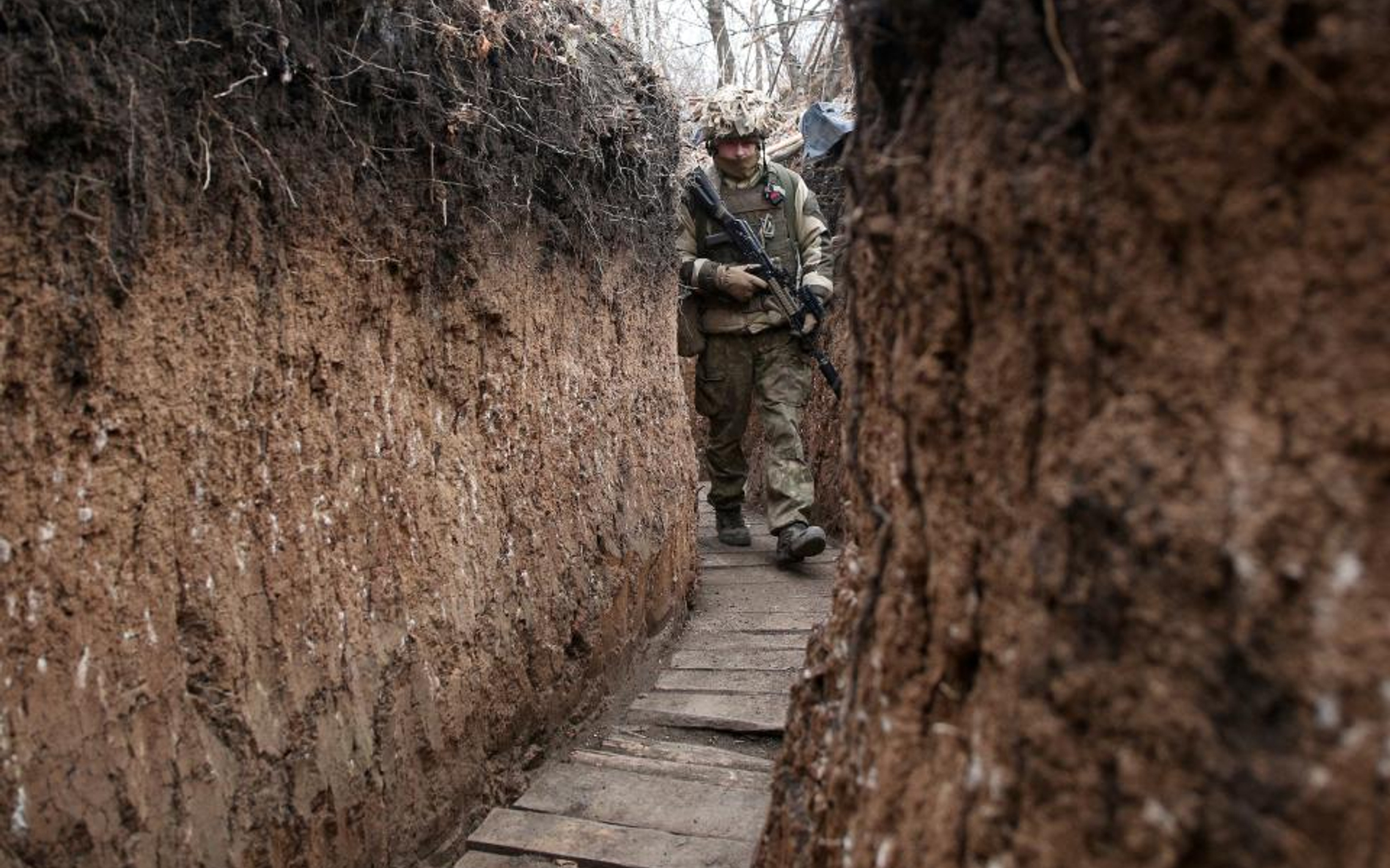
America Is Not Preparing for War
“Of course, America could hold Iraq. But it would require paying a price it is not ready for. That is why we have a problem,” Zbigniew Brzeziński, former national security advisor to Jimmy Carter, said in 2007.*
Today, the United States is facing an opponent in Ukraine that is entirely different from the radical Islamic organizations in the Middle East: The Kremlin. But despite the differences, America’s dilemma is similar to that of several years ago: Is Ukraine worth the confrontation with Russia, whose national income is 14 times less than that of the U.S. while its defense budget is 12 times less?
“Vladimir Putin knows perfectly well that Ukraine is much more important to Russia than to the U.S., and therefore he is ready to sacrifice much more than America. This is the basis of his strategy,” said John Lough, an expert at Chatham House, in a conversation with Rzeczpospolita.*
Not Enough Time
Even though Putin has not yet made the decision to launch an operation, U.S. intelligence is concerned that a Russian invasion of Ukraine could occur in a matter of weeks, not months. Still, although time is limited, there is no discussion in Washington about direct support for Ukraine.
“If Russia does invade, NATO will not take direct military action against Russia. But you will likely see more arms supplies by individual NATO members to Ukraine, and the Alliance as a whole will become even more serious about bolstering its deterrence and defense posture against Russia,” concluded Steven Pifer, the U.S. ambassador to Ukraine from 1998 to 2000.
Last week, President Andrzej Duda appealed to NATO headquarters for more support for the pact’s eastern flank.
The Americans have already provided Ukrainians with weapons worth $400 million this year, but Congress is pushing for more. More importantly, this concerns defensive as well as offensive weapons. For instance, Kyiv receives Javelin handheld anti-tank missiles, already used by Ukrainian troops in Donbass. In addition, the Americans are considering supplying the Stinger anti-craft missiles that played such a significant role in the Russian disaster in Afghanistan. Further, Kyiv could receive Russian-made Mi-17 helicopters, initially purchased by the White House to send to the troops in Afghanistan. According to CNN, Joe Biden’s team is also considering sending U.S. military instructors to Ukraine. For weeks now, Washington has been sharing intelligence with Kyiv about Russia’s movements.
If time permitted, such a strategy would certainly be effective. Thanks to American military aid since 2014, the Ukrainian army has transformed itself into a force comparable to the army in Poland, a country with a national income four times greater. According to Globalfirepower.com, Ukraine ranks 25th on the list of the greatest military powers in the world, while our country is 23rd.
Americans, however, are concerned that Putin will start an offensive at the end of January. That is why the Biden administration has undertaken a parallel path of action with respect to Moscow — a diplomatic one. White House press secretary Jen Psaki did not rule out the possibility that this week during the Organization for Security and Cooperation in Europe Ministerial Council meeting in Stockholm, there will be a separate session between Secretary of State Antony Blinken and Russian Minister of Foreign Affairs Sergey Lavrov. A Biden-Putin summit is also being considered in Washington.
A similar meeting took place in Geneva last June — it was a condition imposed by the Kremlin for withdrawing troops from the Ukrainian border in the spring. The Biden administration then allowed the Russians to negotiate areas such matters as the reduction of strategic nuclear missiles, cyberattacks and the containment of the Iranian nuclear program.
Coup d’Etat
This time, though, Putin is setting the bar of deescalation much higher in Ukraine.
“One way or another, he wants Ukraine neutralized,” explained Fiona Hill, who served as the top Russia adviser on the National Security Council under the Trump administration.
As Fyodor Lukyanov, who is associated with the Kremlin, explains, Moscow cares not only about seeking guarantees that Ukraine would never join NATO, but also that the West will stop supporting the modernization of the Ukrainian armed forces.
U.S. intelligence believes that if you refer to the classic model tested in Georgia in 2008 and Crimea in 2014, the Kremlin has already launched diversionary operations in Ukraine to justify the Russian invasion in the eyes of the world. “All of which is why we're looking at this very carefully,” Blinken said.
Accordingly, Moscow is accusing Kyiv of preparing to recapture Donbass. On Friday, President Volodymyr Zelenskiy himself revealed that the Ukrainian security services obtained recordings of Ukrainians and Russians discussing preparations for a coup in Kyiv this coming Wednesday or Thursday. The richest Ukrainian oligarch, Rinat Akhmetov, is supposed to be participating.
In addition, Moscow hopes that Zelenskiy’s waning popularity will help Russia — only 25% of Ukrainians approve of his policy. Furthermore, the president is facing another wave of the pandemic and slowing economic growth, while the fight he undertook against the oligarchs has made him numerous enemies, including Akhmetov himself. The Russian attack could therefore be presented as “liberation” from Kyiv's oppression.
The Ukrainian president is unsuccessfully attempting to arrange a meeting with Putin. The Kremlin does not want to meet because it has recognized that Zelenskiy radically changed course last year by deciding to work closely with the U.S. Putin also realized that negotiations under the Normandy Format, which were intended to give Donbass special status within Ukraine, and to give Moscow the right of veto over Kyiv’s strategic decisions, did not achieve these goals.
*Editor’s note: This quote, accurately translated from the original, could not be verified.
